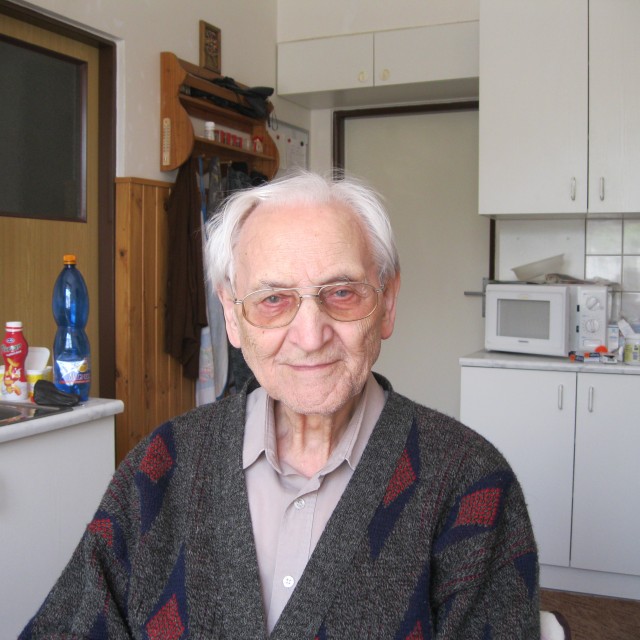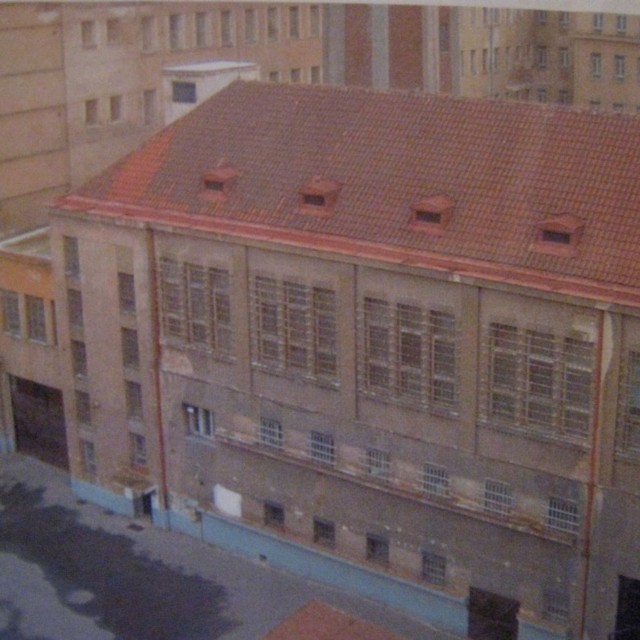Faith in God Kept Me Alive
Before his trial in 1950, Josef Vlček was placed in a solitary confinement in remand prison Ruzyně. He recalls that these were the worst moments of his life. He spent entire days, weeks and months in isolation, the only company being bare walls and his own thoughts. In the hardest moments, it was the faith in God and self-control that helped him through. “Prayers helped me a lot. I knew the entire Mass by heart. So in my mind, I was present at some mass celebrated somewhere in the world. It was the faith in God that kept me alive. Many people placed in solitary confinements went crazy.” After the trial that took place in August 1951, Josef Vlček was sent to remand prison Ruzyně again, and he had to spend several months in a work commando. Screaming of tortured prisoners was the order of the day. “The guys who worked in the laundry room said that the clothes they washed were full of blood, excrements and all these things. They also said that wooden coffins were brought to the prison on regular basis.”
Hodnocení
Abyste mohli hodnotit musíte se přihlásit!
Trasy
Příběh není součastí žádné trasy.
Komentáře

Josef Vlček
Josef Vlček was born in 1920 in Kaňovice near Frýdek. As a young boy, he wanted to become a priest. He studied the Salesian grammar school in Fryšták. He was not able to complete his studies at the Faculty of Theology in Olomouc due to the closing of universities by the Nazis. After the war, he became the general secretary of the Saints Cyril and Methodius Association, and in 1947 the secretary of the Liberal Schools Bureau. He was one of the leaders of the struggle for the preservation of church schools before and after 1948. In May 1948 he attended a meeting of the bishops and the delegation of the Central Action Committee of the National Front. During the discussions, he created a draft law on exemptions from state schools. He was arrested in 1950 when attempting escape to the West. He spent several months in a solitary cell in the Prague-Ruzyně prison before his trial. In the trial called Valena and Company, the Party leadership sentenced him to death penalty. After the suspension of the trial, he was eventually sentenced to 21 years of imprisonment. He spent nearly 10 years in the prisons in Ruzyně and Leopoldov and in the uranium mines near Jáchymov and Příbram. He was released in amnesty in 1960 and he began working unskilled jobs. During the Prague Spring of 1968,he served as the diocese secretary of the Council Reformation Movement and he worked in the Olomouc branch of the printing company Logos. During the normalization era he worked in manual jobs again. He didn't give up, and he continued in his struggle for the spiritual revival of the nation. From 1977 onward he printed and disseminated prohibited religious texts again. He was arrested for this, and in 1981, when he was sixty years old, he was sentenced to 20 months of imprisonment. He served half of this sentence in the prison in Plzeň-Bory, after which he was released. Undaunted by the political regime, he continued to print and spread religious literature. After November 1989, he became one of the main leaders in the restoration of the Saints Cyril and Methodius Association, eventually becoming its chairman. At present he lives in Olomouc, and he still serves as an editor-in-chief of the weekly magazine Světlo, (Light), in spite of his ripe age of 91 years.






